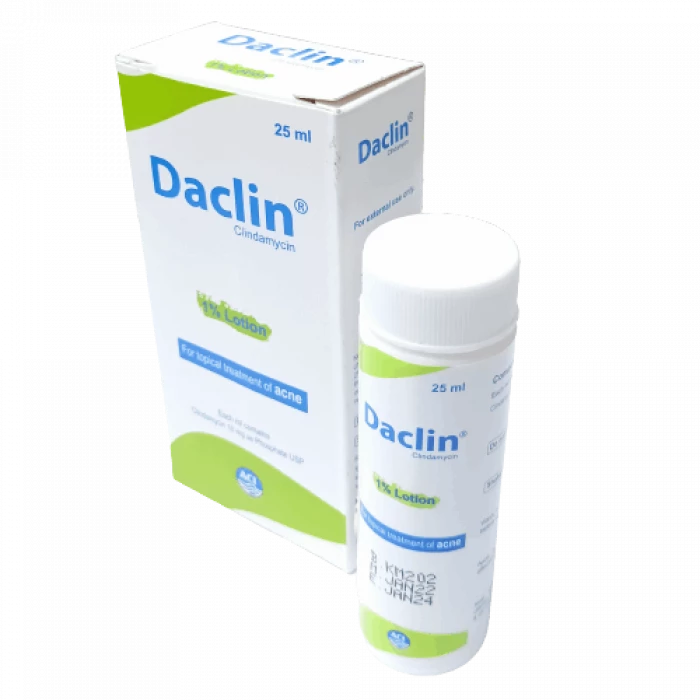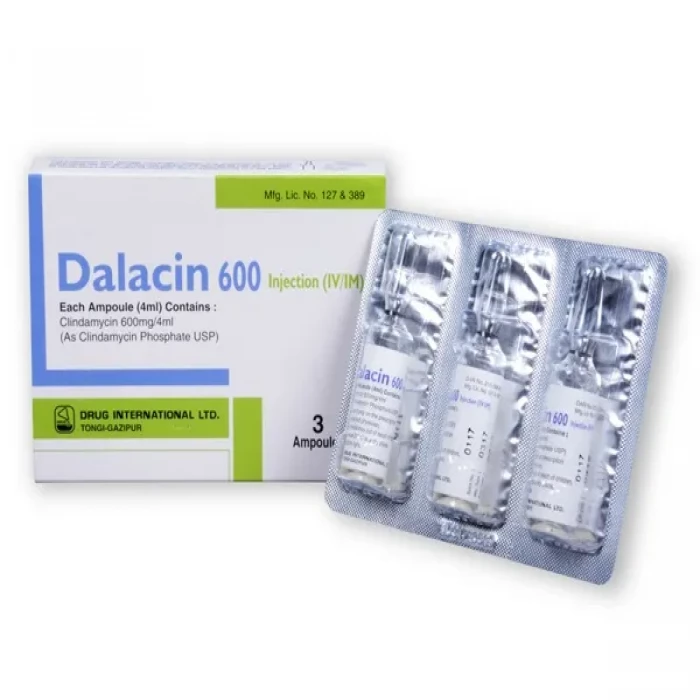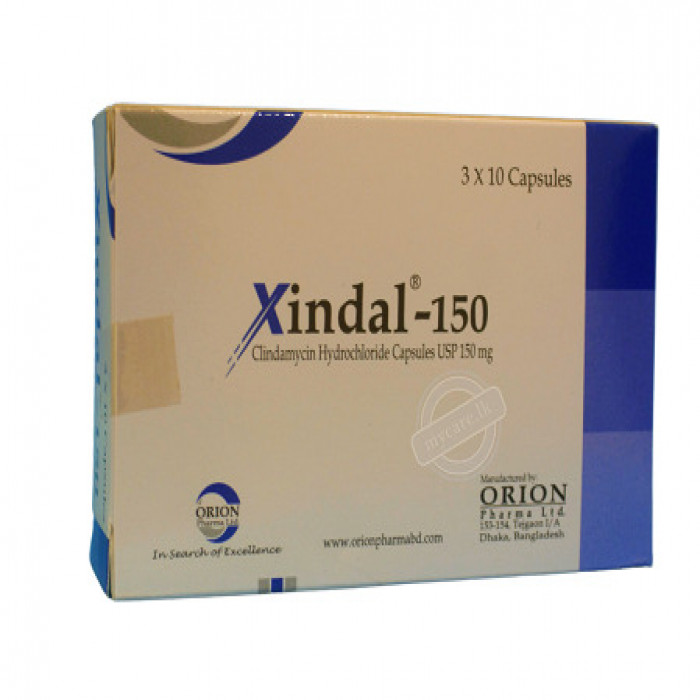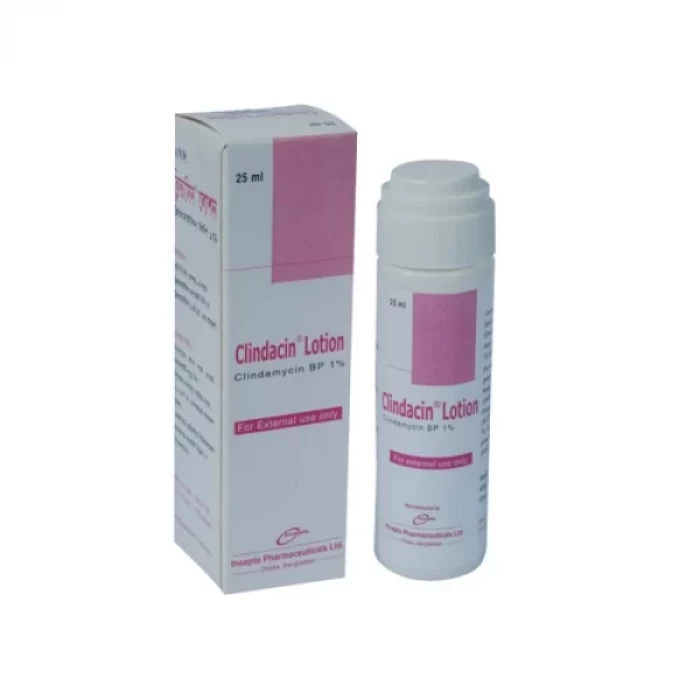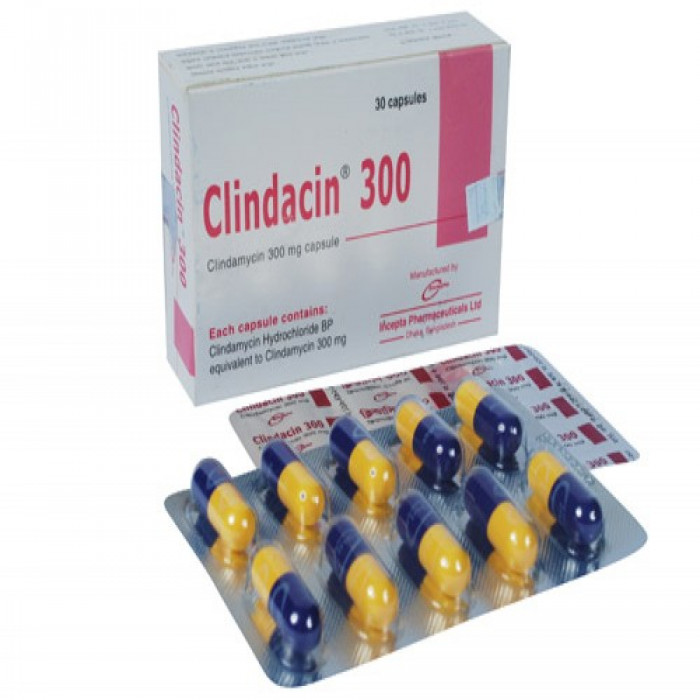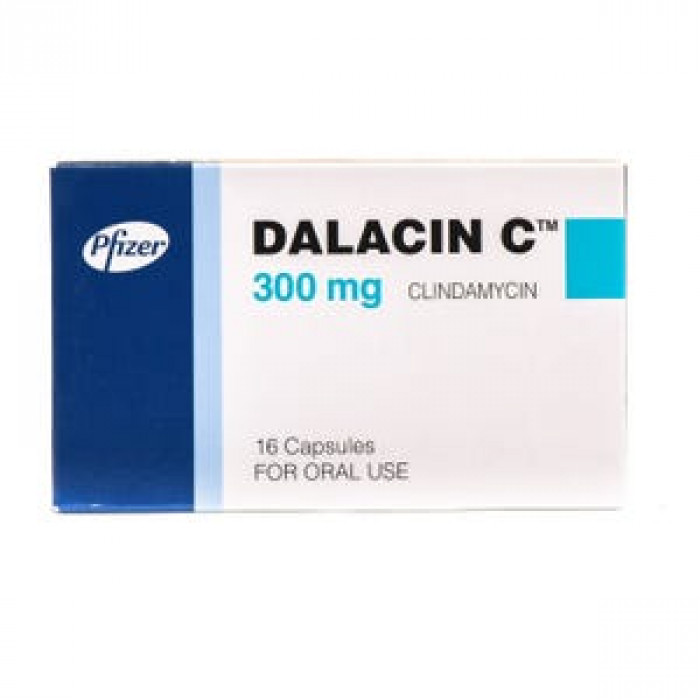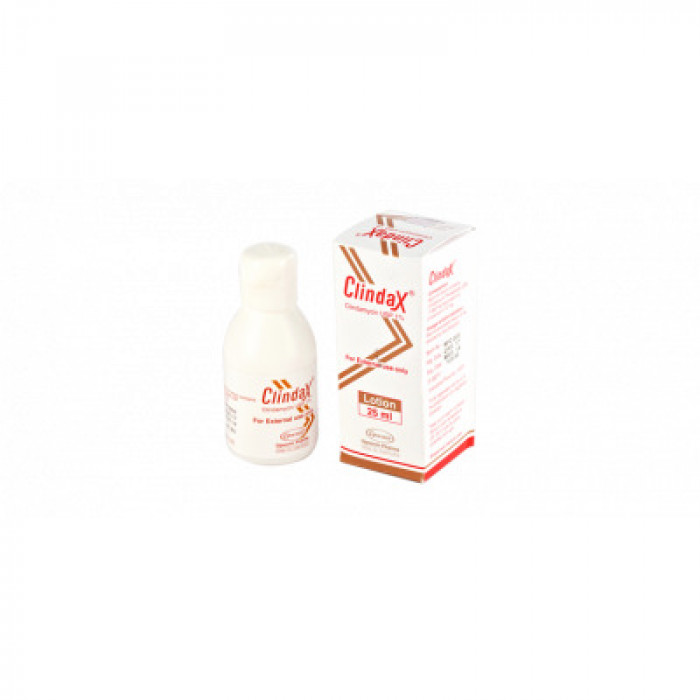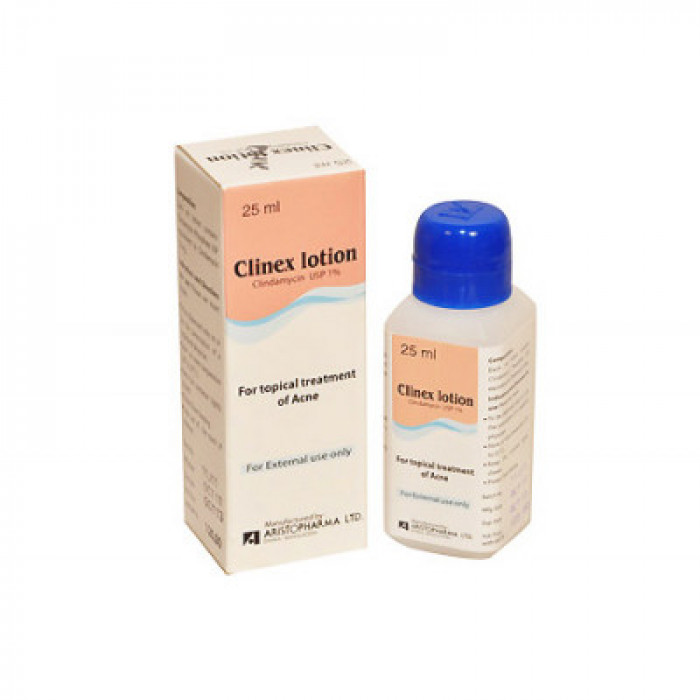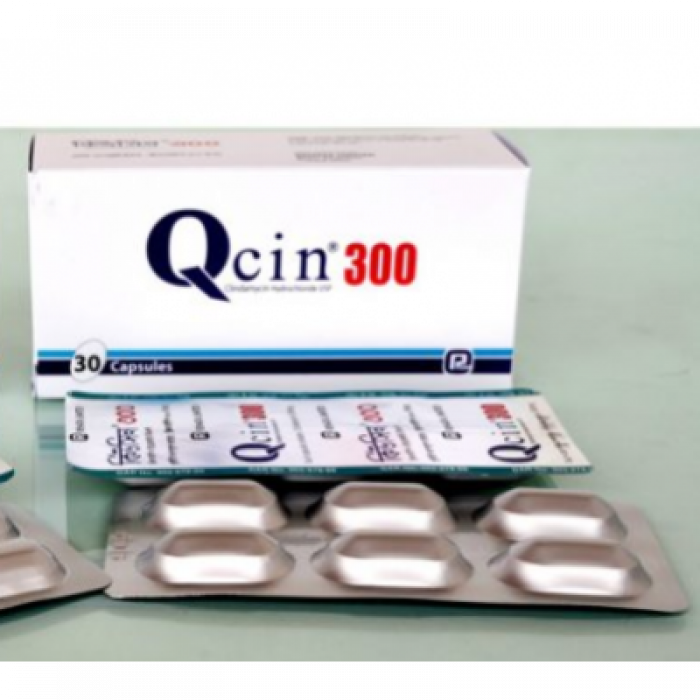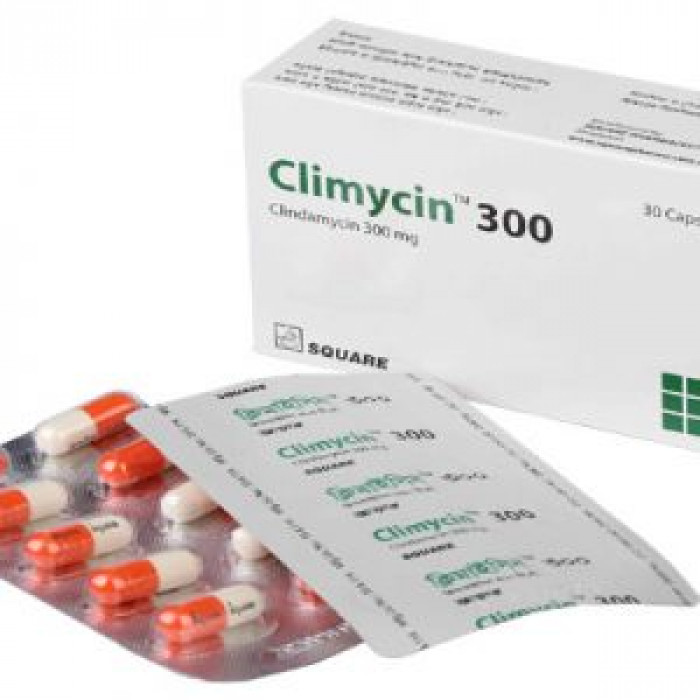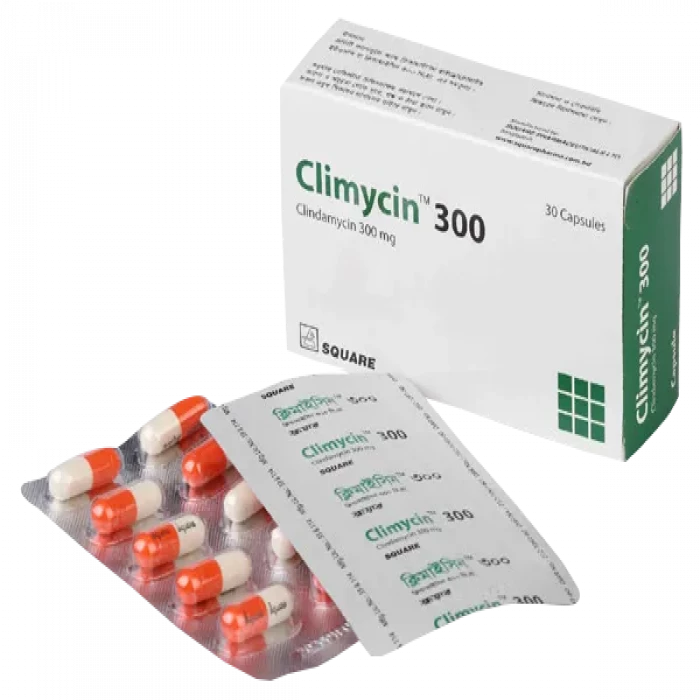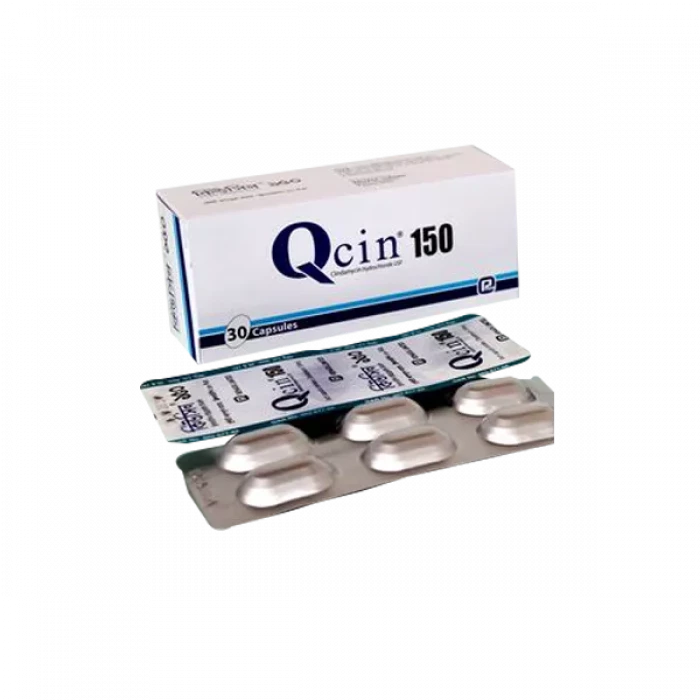
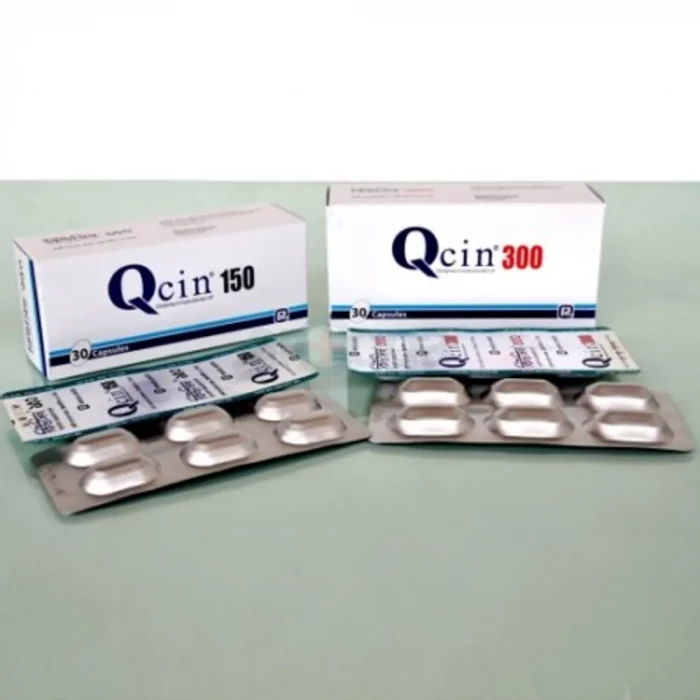
✔ 100% Authentic Product
👁️ Currently Viewing 2986
Qcin 150mg Capsule is used in the treatment of Bacterial Infections. It is used in infections of the skin such as acne (Pimples), abdomen, bone, skin, heart, and soft tissues.
Discount
Price: ৳ 46
MRP:
৳
48
5%
Off

100% Genuine Products, Guaranteed

Safe & Secure Payments, Always

Fast, Secure & Efficient Delivery

Proper Packaging
 Cash on Delivery - All over Bangladesh
Cash on Delivery - All over Bangladesh Regular Delivery - 12-24 Hours, Dhaka City* Charge Tk.39-59
Regular Delivery - 12-24 Hours, Dhaka City* Charge Tk.39-59 Regular Delivery - 24-48 Hours, Other Cities* Charge Tk.99-110
Regular Delivery - 24-48 Hours, Other Cities* Charge Tk.99-110
 ফ্রি ডেলিভারিঃ - ৯৯৯ টাকা+ অর্ডারে, ঢাকা
শহরে
ফ্রি ডেলিভারিঃ - ৯৯৯ টাকা+ অর্ডারে, ঢাকা
শহরে ফ্রি ডেলিভারিঃ - ২৯৯৯ টাকা+ অর্ডারে, ঢাকার
বাহিরে
ফ্রি ডেলিভারিঃ - ২৯৯৯ টাকা+ অর্ডারে, ঢাকার
বাহিরে
100% Genuine Products, Guaranteed
Safe & Secure Payments, Always
Fast, Secure & Efficient Delivery
Proper Packaging
 Cash on Delivery - All over Bangladesh
Cash on Delivery - All over Bangladesh Regular Delivery - 12-24 Hours, Dhaka City* Charge Tk.39-59
Regular Delivery - 12-24 Hours, Dhaka City* Charge Tk.39-59 Regular Delivery - 24-48 Hours, Other Cities* Charge Tk.99-110
Regular Delivery - 24-48 Hours, Other Cities* Charge Tk.99-110 ফ্রি ডেলিভারিঃ - ৯৯৯ টাকা+ অর্ডারে, ঢাকা
শহরে
ফ্রি ডেলিভারিঃ - ৯৯৯ টাকা+ অর্ডারে, ঢাকা
শহরে ফ্রি ডেলিভারিঃ - ২৯৯৯ টাকা+ অর্ডারে, ঢাকার
বাহিরে
ফ্রি ডেলিভারিঃ - ২৯৯৯ টাকা+ অর্ডারে, ঢাকার
বাহিরে
✅ Description:
Clindamycin is a medication used to treat bacterial infections, including intra-abdominal infections, skin and soft tissue infections, tonsillitis, and dental infections. It is also used in the form of a lotion to treat acne vulgaris.
This drug belongs to the lincosamide class of antibiotics and functions by inhibiting bacterial protein synthesis. Common side effects of Clindamycin may include nausea, diarrhea, vomiting, and abdominal pain. However, it is important to avoid taking this medication if you have certain conditions or allergies:
- Gastrointestinal diseases.
- Allergy to lincosamides.
- Asthma, liver disease, eczema, Crohn's disease, or intestinal diseases.
- Breastfeeding a baby.
Clindamycin may interact with other drugs, herbs, and vitamins, potentially affecting its effectiveness. It is crucial to inform your doctor about all your other medications before starting Clindamycin. While it is generally safe during pregnancy, consulting a doctor before use is advisable.
The recommended dosage for adults with serious infections is usually 150-300 mg every 6 hours, and for severe infections, it is 300-450 mg every 6 hours. It is essential to complete the full prescription as directed by your healthcare provider, even if you start feeling better. Nausea or vomiting may occur, and you can manage these side effects by having small, frequent meals, practicing good oral hygiene, chewing gum, or using lozenges.
Safety Advices

Alcohol
Interaction with alcohol is unknown.

Pregnancy
CONSULT YOUR DOCTOR
Please consult your doctor before using Qcin 150mg Capsule if you are pregnant or planning to conceive.

Breastfeeding
CONSULT YOUR DOCTOR
Qcin 150mg Capsule is not recommended for use in breastfeeding women as it may pass into breast milk. Consult your doctor before taking Qcin 150mg Capsule.

Driving
SAFE
Qcin 150mg Capsule has no or negligible influence on the ability to drive or use machines.

Kidney
CONSULT YOUR DOCTOR
Caution must be taken while using Clindamycin in patients with kidney disease. Adjustment of dose might be needed. Kindly consult your doctor before taking this medicine.

Liver
CONSULT YOUR DOCTOR
Caution must be taken while using Clindamycin in patients with liver disease. Adjustment of dose might be needed. Kindly consult your doctor before taking this medicine.
✔️ Uses of Qcin 150mg Capsule
- Lower Respiratory Tract Infection
- Skin and soft tissue infections
- Stomach and intestinal infections
- Bacterial vaginitis
- Bone and Joint infections
- Acne vulgaris
✔️ How does Qcin 150mg Capsule work?
Clindamycin works by stopping the bacteria from making proteins that are essential for their survival. This kills or stops the growth of bacteria.
✔️ Side Effects of Qcin 150mg Capsule
- Loss of appetite
- Black or Tarry stools
- Blurred vision
- Stomach pain
- Diarrhea
- Fast heartbeat
- Muscle or joint pain
- Headache
- Increased thirst
- Nausea and vomiting
- Skin rash
- Skin irritation
✔️ Quick Suggestions:
✔️ Acne:
Acne is a skin condition characterized by the clogging of hair follicles with a combination of oil and dead skin cells. It can manifest in various forms, including whiteheads, blackheads, pimples, cysts, and nodules. Acne is a common condition that can affect individuals of all age groups, although it is particularly prevalent among teenagers. Common symptoms of acne include the presence of blackheads, pus-filled pimples, and the development of large, red bumps. Acne breakouts can occur on various parts of the body, such as the face, neck, back, shoulders, and chest.
Several risk factors contribute to the development of acne, including hormonal changes, conditions like polycystic ovarian syndrome (PCOS), inadequate sleep, stress, smoking, the use of dermatological and cosmetic products with high oil content, and genetic predisposition.
The treatment of acne typically involves a combination of approaches. These may include the use of antibiotics, retinoids, and topical products, along with dietary and lifestyle modifications. Consulting with a healthcare professional or dermatologist is advisable to determine the most suitable treatment plan based on the individual's specific condition and needs.
✔️ Pharmacology
Clindamycin inhibits protein synthesis by reversibly binding to the 50S subunit of the ribosomal thus blocking the transpeptidation or translocation reactions of susceptible organisms resulting to stunted cell growth.
✔️ Dosage & Administration of Qcin 150mg Capsule
The dosing recommendations for Clindamycin capsules vary depending on the severity of the infection:
For Serious Infections: A typical dosage range is 150 mg to 300 mg taken every six hours.
For More Severe Infections: In cases of more severe infections, the dosage may be increased to 300 mg to 450 mg taken every six hours.
To minimize the possibility of irritation to the esophagus (the tube that connects the mouth to the stomach), it is advisable to take Clindamycin capsules with a full glass of water.
✔️ Interaction
Drug-Drug Interactions:
- Clindamycin may interact with other medications, including antibiotics like erythromycin, anticoagulants like warfarin, and neuromuscular blocking agents like atracurium and vecuronium. It's essential to inform your doctor about all the medications you are taking to avoid potential interactions.
Drug-Food Interactions:
- No specific interactions between Clindamycin and food have been established. However, it's generally recommended to take Clindamycin with a full glass of water to minimize the risk of esophageal irritation.
Drug-Disease Interactions:
- Before using Clindamycin, inform your doctor if you have any underlying medical conditions, such as:
- Liver Disease: Your doctor may need to adjust your dosage or monitor you more closely if you have liver disease.
- Kidney Disease: Similar to liver disease, kidney disease may require dosage adjustments or closer monitoring during Clindamycin treatment.
- Colitis: Clindamycin should be used with caution in individuals with colitis, as it can sometimes exacerbate this inflammatory condition of the colon.
- Asthma, Hay Fever, Eczema, and Dermatitis: If you have a history of these allergic conditions, your doctor should be informed, as Clindamycin should be used cautiously in such cases.
✔️ Contraindications
Hypersensitivity.
✔️ Pregnancy & Lactation
Pregnancy:
- In clinical trials involving pregnant women, the systemic administration of clindamycin during the second and third trimesters did not show an increased frequency of congenital abnormalities.
- However, for the first trimester of pregnancy, the safety of clindamycin has not been well studied in pregnant women. It should only be used during the first trimester if the potential benefits clearly outweigh the risks.
- Animal studies do not always predict the response in humans, so the use of clindamycin during pregnancy should be limited to situations where it is clearly necessary.
Lactation:
- Clindamycin has been detected in breast milk at concentrations ranging from 0.5 to 3.8 mcg/mL.
- There is a potential for clindamycin to affect the gastrointestinal flora of breastfed infants. This can result in adverse effects such as diarrhea, candidiasis (thrush), diaper rash, or, rarely, blood in the stool (indicating possible antibiotic-associated colitis).
- If a nursing mother requires oral or intravenous clindamycin treatment, it is generally not a reason to discontinue breastfeeding. However, the healthcare provider may consider alternative medications that have a lower risk of affecting the infant's gastrointestinal flora.
- It's essential for nursing mothers to monitor their infants for any adverse effects while taking clindamycin and to consult with a healthcare professional if any concerns arise.
- The decision to continue breastfeeding while using clindamycin should weigh the developmental and health benefits of breastfeeding against any potential adverse effects on the breastfed child, taking into account the mother's clinical need for clindamycin and any underlying maternal conditions. This decision should be made in consultation with a healthcare provider.
✔️ Precautions & Warnings
- Allergy: Do not use Clindamycin if you are allergic to any of its components. If you suspect an allergic reaction while using this medication, seek medical attention immediately.
- Liver and Kidney Disease: Inform your doctor if you have any liver or kidney disease, as they may need to adjust your dosage or monitor you more closely.
- Gastrointestinal Diseases: Clindamycin should be used with caution in individuals with gastrointestinal diseases, especially colitis, which is an inflammation of the colon. This medication can sometimes exacerbate such conditions.
- Allergic Conditions: If you have a history of allergic conditions like asthma, hay fever, eczema, or dermatitis, inform your doctor. Clindamycin should be used cautiously in such cases.
- Alcohol-Containing Products: Limit the use of products that contain large amounts of alcohol (e.g., astringents, shaving creams, or after-shave lotions) while using Clindamycin. Alcohol-containing products may interact with Clindamycin and cause irritation or skin reactions.
- Hair Removal Products: Be cautious when using hair removal products in the same area where Clindamycin is applied, as they may interact and cause skin irritation.
- Products with Lime or Spices: Avoid using products that contain lime or spices in the same area where Clindamycin is applied, as they may interact and cause skin irritation.
- Mucous Membranes and Lesions: Do not apply Clindamycin on mucous membranes (e.g., inside the nose, mouth, or eyes), open wounds, or lesions. Use it only on intact skin as directed by your healthcare provider.
- Pregnancy: Pregnant women should consult their doctor before using Clindamycin. The benefits and potential risks should be carefully considered.
- Breastfeeding: Breastfeeding women should also consult their doctor before using Clindamycin. The potential impact on the infant should be discussed with a healthcare provider.
- Children: Clindamycin is generally not recommended for use in children below 12 years of age. It should only be used in pediatric patients under the guidance of a healthcare provider.
✔️ Storage Conditions
- Keep Clindamycin out of reach from children
- Do not store above 30°C
⚠️Disclaimer:
At ePharma, we’re committed to providing accurate and accessible health information. However, all content is intended for informational purposes only and should not replace medical advice from a qualified physician. Please consult your healthcare provider for personalized guidance. We aim to support, not substitute, the doctor-patient relationship.




